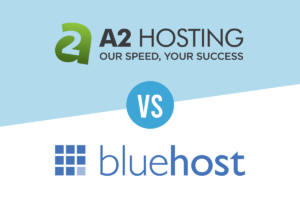Building an online store is a major investment of time and effort. Even using the most user- and beginner-friendly options, you'll be putting in time adding products, uploading photos and creating content. Naturally, you want to know that your investment will pay off as well as possible.
Finding the best platform to sell online is about self-assessment. Where are you at on coding and design skills? What is your target for paying fees? Will you need tech support at 3 a.m. on a Sunday?
The platforms break up into three groups: the pure store solutions, the coder's options and the hosting-centric choices. Let's take a look at the pros and cons of 12 of the strongest players out there.
Hosted Ecommerce Platforms
These companies handle the hosting for you and have a more locked-in system. The huge upside is security and performance. The downside is less control over the code and infrastructure. Most large ecommerce sites will eventually outgrow a hosted solution and move on to their own customer ecommerce system.
1. Shopify
Shopify is, by the numbers anyhow, the system that most people consider the best platform to sell online, at a market share in the upper 20-percent range by most estimates. Its greatest strength is the ease of use, with tools that allow even non-techies to get stores up and running in a day's time. Taxes are calculated automatically, and the company offers 24/7 tech support.
A major downside to using Shopify is that lock-in effect is the company's business model. Fees start cheap, at $29 per month, but they can go up to $299 per month as your store expands in offerings. There's also no way to make serious adjustments to the underlying code because the system runs on Shopify's servers.
One example of a complaint is being unable to edit Shopify's robots.txt file which can cause issues in some circumstance.
However, for most small to medium shop owners, or even large brands on Shopify Plus, this will be the way to go.
2. BigCommerce
BigCommerce is the second contender for best ecommerce platform. The dashboard for BigCommerce looks almost like a clone of the one that Shopify employs, but the BigCommerce business model is built more around modularity than the scale of a store. This can be beneficial for budget consumers who just want to pay for what they need.
The interface on BigCommerce for adding products is a huge plus. Using a tabbed system, it makes it easy for you to fill in as much or as little information as you need. The modular system also makes it simple to customize the appearance of your store.
3. Volusion
Volusion is an emerging choice as the best platform to sell online. The company is quickly gaining a reputation for providing top-tier premium support options. It offers cloud-based hosting options, so you can rest assured that your site will scale nicely as traffic to it increases. You also don't get hit with the heft fees that can accumulate as features are added with Shopify and BigCommerce.
Volusion easily integrates with point of sale and email marketing systems. On the downside, the list of payment options with fairly limited, with Stripe, Paypal and Amazon being what's offered in addition to credit cards. Conversely, the company offers easy integration with eBay and Amazon stores that customers may already operate.
4. Big Cartel
Big Cartel is a company that's making a play for the small store owner. They offer relatively limited product totals, with 5 to 300 items allowed. You can only add one to 5 images. The major upside, however, is that you're entitled to unlimited bandwidth and orders without having to pay any additional fees. The downside, though, is that you have no room for growth if your product offerings exceed 300.
Tech support is limited, with an email-only option available on Monday – Friday, 9 a.m. to 5 p.m. EST. The interface is downright sparse, but that may be appealing to people who just want the basics.
5. 3dcart
3dcart might be the best ecommerce platform for folks who want a minimalist but highly functional platform. The layout is highly influenced by modern mobile-friendly design, and it feels intuitive for anyone who grew up with smartphones. The minimal design, though, masks a structure that is powerful and has a bit steep of a learning curve.
As is the case with many of the smaller contenders, you have access to unlimited ordering, file storage and bandwidth. Product offerings range from 100 to unlimited, and there is integration for eBay, Amazon, Google Shopping, Shopzilla and even Facebook Marketplace. An emphasis on security is also evident in 3dcart, with an SSL certificate PCI-compliant hosting included.
Open Source Ecommerce Solutions
If you have a development team on hand, ready to go, you can consider one of these open source platforms. You'll get an amazing amount of flexibility, but the big downside is the expense to maintain and upkeep. You'll be paying market wages for web developers ($100/hr+ in developed countries), which adds up quickly. We only recommend going down this route if you're a developer yourself or have 5-10 years of website technical project management.
6. Magento
Magento is the best ecommerce platform for the person who demands code access. If you are already comfortable, for example, working with a content management system like WordPress and want more of the same, Magento is likely to end up being your choice. It's a PHP-based, open-source platform that can be downloaded and modified for use on your own servers. There are also numerous cloud-based hosting options for folks who'd prefer to not deal with setting up their own computers.
As is the case with WordPress, Magento provides users access to an insane amount of plug-ins. If there's a tiny little function that you need, there's a good chance someone has already created it. If it doesn't exist, you're welcome to code it yourself or hire someone to write the code for you.
For the highly tech-savvy crowd, Magento can end up being basically free to use. There are also numerous hosted Magento solutions.
A big upside to all of that is that Magento offers infinite expandability and customizability. The major downside, though, is that you may end up being entirely on the hook for tech support. There are premium tech support offerings, however, as that is the company's business model.
7. OpenCart
OpenCart is the distant second to Magento when it comes to the big open-source ecommerce options. It's largely designed to be downloaded and run on your own server, but there are cloud-based hosting options available.
The main upside is that you get unlimited everything that you can squeeze out of your own server solution. The dashboard makes it very easy to start and maintain multiple stores on the same platform, a plus for companies that operate several brands or in multiple sectors.
As is the case with Magento, there are thousands of themes and plug-ins available. In light of the large number of self-hosters out there, you also can find a ton of community support for the platform online for free.
8. Zen Cart
Zen Cart is the third-team all-star of the open-source ecommerce world. It earns high marks for security and scalability when compared to Magento and OpenCart, and it's a popular choice among hardcore coders who intend to go big with stores over time. Zen Cart has been around a while, and it has a massive user community to support it.
9. OSCommerce
OSCommerce is the last of the big open-source platforms. It has been around for nearly two decades, and it has a reputation for being highly hands-on. As is the case with Zen Cart, it's not a beginner's choice, but those with programming skills will find the accessibility of the platform to be refreshing. OSCommerce is excellent for those who want extreme customizability.
The Ecommerce Add-On Options
All of these platforms offer ecommerce as an add-on. They don't specialize in ecommerce, but if you're already using one of these systems, it's great to know you can stay within the same platform and add-on ecommerce for a fee.
10. Wix
Wix is a business that has been a player in the hosting field for a while, and they're now expanding out into the ecommerce world. Wix uses the same type of super-easy model for setup that the web hosting platform does. There's even drag-and-drop editing capability, making it appealing to folks who are more artists than coders.
The big selling point for Wix is the free-forever plan. If you want to keep it small, you'll never pay anything for your store. Should things start booming and you need to grow, there are premium offerings that top out at only $25 per month.
The downside to using Wix is that it comes with little integration at this time. POS isn't natively supported, and there's pretty much nothing for B2B commerce out of the box.
11. Squarespace
Squarespace is a company that comes into the market from a very similar start as Wix. The big difference is that their ecommerce platform is much closer to the full-on solutions we see from businesses like Shopify and BigCommerce. The interface places an emphasis on simplicity and approachability, making it an excellent choice for pure beginners.
They also offer a ton of templates, allowing you to quickly create something visually appealing. A downside to the Squarespace design model is that most of the templates are super minimal. This means they can produce strangely empty-looking stores for folks who don't have lots of products to put or who have very little in the way of high-quality imagery.
Squarespace offers unlimited products, inventory management and a coupon system. They also provide fulfillment through ShipStation. You only get two payment options, Apple Pay and PayPal, though.
12. Salesforce
Salesforce is a latecomer to the game, branching out from their already highly reputed offerings in the omnichannel marketing sector. The company is heavy into selling predictive analytics as part of their sales pitch. This can make it less appealing for folks who aren't stats-oriented, but it may pique a few folks who want to get in on the Big Data trend without making a major investment in machine learning tools. It's also intriguing for anyone who wants to integrate analytics with their existing physical store sales.
Last Updated on September 28, 2022 by kristen




